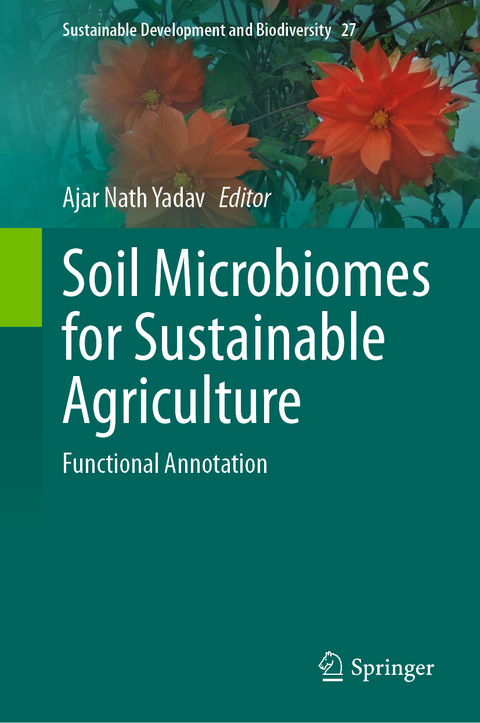
Soil Microbiomes for Sustainable Agriculture
Springer International Publishing (Verlag)
978-3-030-73506-7 (ISBN)
The aim of the book "Soil Microbiomes for Sustainable Agriculture" is to provide the recent advances in mechanisms of plant growth promotion and applications of soil microbiomes for mitigation of different abiotic stresses in plants. The book is useful to scientists, researchers, and students related to microbiology, biotechnology, agriculture, molecular biology, environmental biology, and related subjects.
Introduction to Functional Annotation of Soil Microbiomes.- Plant Growth Promoting Soil Microbiomes: Current Research and Future Directions.- Mechanisms of Plant Growth Promotion by Rhizospheric Microbiomes.- Microbes Associated with Crops: Functional Attributes for Crop Productivity.- Soil Microbes with Multifarious Plant growth Promoting attributes for Enhanced Production of Food Crops.- Phosphorus Solubilization: Mechanisms, Recent Advancement and Future Challenge.- Potassium Solubilization: Mechanisms, and Functional Impact on Plant Growth.- Fe-chelation and Zinc Solubilization: A Promising Approach for Cereals Biofortification.- Microbial ACC-Deaminase attributes: Role in Stress Agriculture.- Soil Microbes in Plant Growth Promotion and for Mitigation of Abiotic Stress of Drought.- Thermotolerant Soil Microbes and Their Role in Mitigation of Heat Stress in Plants.- Microbiomes of Hypersaline Soil and their Role in Mitigation of Salt Stress.- Psychrotrophic Soil Microbes and their Role in Alleviation of Cold Stress in Plants.- Mitigation strategies for Abiotic Stress Tolerance in Plants through Stress tolerant PGP Microbes.- The Omics Strategies for Abiotic Stress Responses and Microbe-Mediated Mitigation in Plants.- Plant Probiotics: Technical challenges and emerging solutions for Enhancing food crop production.- Microbial Consortium: A Promising Tools for Sustainable Agriculture.- Soil Microbes as Biofertilizers for Sustainable Agriculture and Environments.- Soil Microbes as Biopesticides: Agricultural Applications and Future Prospect.- Mycorrhiza: Plant Growth Promoting and Biocontrol Agent Ability under the Abiotic Stress Conditions.- Entomopathogenic Soil Microbes for Sustainable Crop Protection.- Global Scenario of soil Microbiome Research: Current trends and Future prospect.- Conclusion.
| Erscheinungsdatum | 30.06.2021 |
|---|---|
| Reihe/Serie | Sustainable Development and Biodiversity |
| Zusatzinfo | XXIII, 634 p. 71 illus., 70 illus. in color. |
| Verlagsort | Cham |
| Sprache | englisch |
| Maße | 155 x 235 mm |
| Gewicht | 1218 g |
| Themenwelt | Naturwissenschaften ► Biologie ► Mikrobiologie / Immunologie |
| Naturwissenschaften ► Biologie ► Ökologie / Naturschutz | |
| Naturwissenschaften ► Geowissenschaften ► Geologie | |
| Schlagworte | Bioresources • Biotechnological application • Crop improvements • Plant growth promotion • Soil microbiomes |
| ISBN-10 | 3-030-73506-0 / 3030735060 |
| ISBN-13 | 978-3-030-73506-7 / 9783030735067 |
| Zustand | Neuware |
| Informationen gemäß Produktsicherheitsverordnung (GPSR) | |
| Haben Sie eine Frage zum Produkt? |
aus dem Bereich


